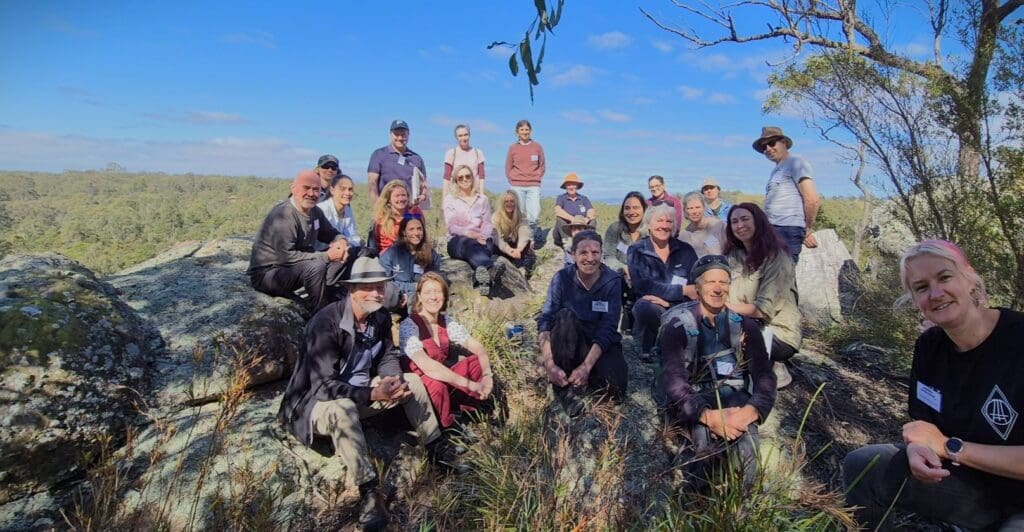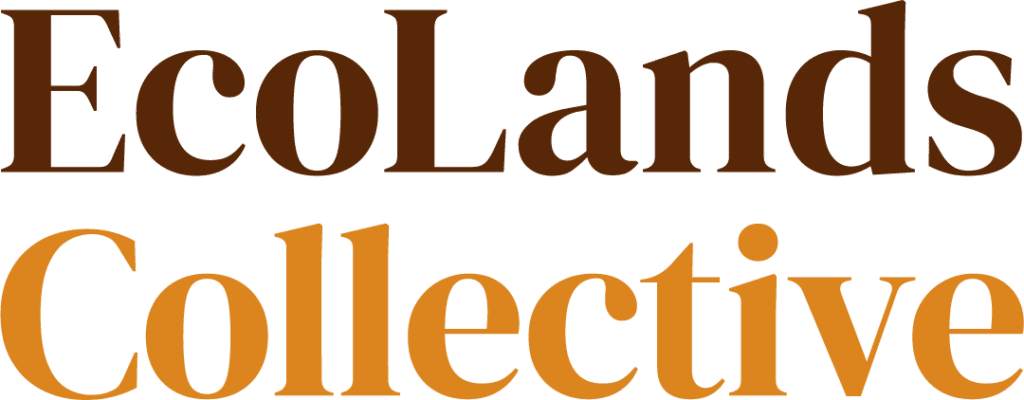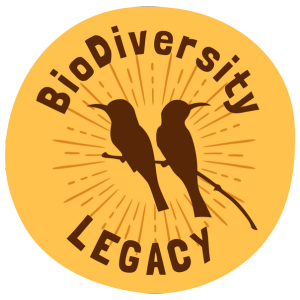
At Biodiversity Legacy, we believe that real, lasting change happens when passionate people and organisations come together with a shared purpose. That’s why we’re proud to be part of the Ecolands Collective – a growing alliance of emerging and regional conservation groups working collaboratively to strengthen biolinks, support threatened species and drive some of the high-impact environmental projects highlighted below.
Partnering for Quoll Recovery in East Gippsland
One standout initiative is a bold Spot-tailed Quoll recovery project in East Gippsland, led by colleagues at the Bairnsdale-based ecological not-for-profit, Wildlife Unlimited (WUL).
This 10-year program, supported by the Victorian Government’s Nature Fund (2024), aims to rebuild local populations of this elusive apex predator, whose numbers have plummeted dramatically in recent decades. The project brings together a powerful consortium of experts, including ecologists, geneticists, First Nations communities, species reintroduction specialists and concerned government and non-government organisations.
The epicentre of this activity is the rugged Little River Gorge – a remote and vital stronghold for the species in East Gippsland. Here, field ecologists trek deep into the bush to monitor populations, explore reintroduction options and advocate for landscape-scale recovery efforts.
Importantly, quoll conservation has broader ecological benefits, with recovery actions expected to support 17 nationally listed and over 150 state-listed threatened species – including the Brush-tailed Rock-wallaby, Southern Brown Bandicoot, Southern Greater Glider, Glossy Black-Cockatoo, and Powerful Owl [to find out more, or to donate to the Quoll Recovery Project »].
Restoring Sheoak for Glossy Black-Cockatoos
Still in East Gippsland – a region continuing to recover from the 2019/20 bushfires – Biodiversity Legacy is supporting the Helping Hands for Sheoak project, which is restoring feeding habitat for the endangered Glossy Black-Cockatoo, which feeds almost exclusively on Sheoak seeds.
This collaborative effort builds upon previous work carried out by DEECA and Birdlife Australia and includes participation by Wildlife Unlimited, Biodiversity Legacy, Far East Victoria Landcare, Moogji Aboriginal Council and Friends of Mallacoota. By supporting landholders, this project delivers both ecological restoration and community empowerment, contributing to species recovery across a fragmented landscape [learn more about Helping Hands for Sheoak »].
Nature Recovery Along the Bass Coast
On Victoria’s Bass Coast, just 14% of native vegetation remains, but a bold new initiative is turning the tide. The Nature Recovery Foundation (NRF), co-founded by Bass Coast Shire and Biodiversity Legacy, is working with landholders and the wider community to halt biodiversity loss and strengthen wildlife corridors. This whole-of-community approach is designed to deliver enduring outcomes, rooted in local stewardship and landscape-scale thinking.
Grassroots Action and Long-term Protection
Our collaboration doesn’t stop there. Through the Ecolands Collective, we’re also proudly associated with the Gippsland Threatened Species Action Group – a volunteer-driven Landcare organisation monitoring and protecting native species along the Bass Coast. With decades of grassroots experience and deep regional ties, their work is vital to raising awareness of local species and building regional biolinks [learn more about the Gippsland Threatened Species Action Group »].
We’re also connected to Land Covenantors Victoria (LCV), a member-based organisation helping landholders protect biodiversity on private land through Trust for Nature conservation covenants. LCV’s aligned vision supports the Biodiversity Legacy mission to see more land protected, and we love referring landholders to LCV to begin or enhance their covenanting journey. [Learn more about Land Covenantors Victoria »]
The Power of Connection
Many of the organisations mentioned – including Biodiversity Legacy – are relatively young, but by working together under the Ecolands Collective banner, the ripple effects are starting to show.
“By being part of a collective of like-minded organisations, we’ve built strong partnerships and delivered initiatives already creating positive environmental and social impacts,” says Robyn Edwards, Biodiversity Legacy’s Grants & Partnerships Manager and East Gippsland Biolink Coordinator.
“Sharing a common vision means we can lift each other up, exchange knowledge and strategically identify where we can have the most impact. Together, we’re achieving more than we ever could alone.”

The Ecolands Collective is supported by the Rendere Environmental Trust, which has provided seed funding and operational support – from governance and ACNC registration to strategic advice and communications – to help these groups grow and thrive.
